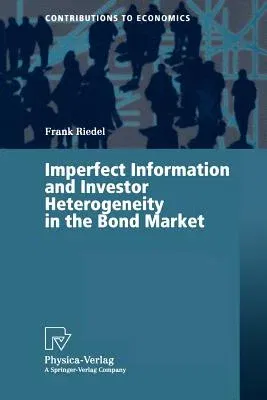Frank Riedel
(Author)Imperfect Information and Investor Heterogeneity in the Bond Market (Softcover Reprint of the Original 1st 2000)Paperback - Softcover Reprint of the Original 1st 2000, 17 November 1999

Qty
1
Turbo
Ships in 2 - 3 days
In Stock
Free Delivery
Cash on Delivery
15 Days
Free Returns
Secure Checkout
Part of Series
Contributions to Economics
Part of Series
Zew Economic Studies
Part of Series
Contributions to Economics Contributions to Economics
Print Length
118 pages
Language
English
Publisher
Physica-Verlag
Date Published
17 Nov 1999
ISBN-10
3790812471
ISBN-13
9783790812473
Description
Product Details
Author:
Book Edition:
Softcover Reprint of the Original 1st 2000
Book Format:
Paperback
Country of Origin:
DE
Date Published:
17 November 1999
Dimensions:
23.39 x
15.6 x
0.71 cm
ISBN-10:
3790812471
ISBN-13:
9783790812473
Language:
English
Location:
Heidelberg
Pages:
118
Publisher:
Series:
Weight:
195.04 gm

